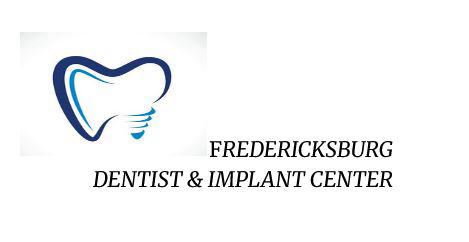
12104 Sheraton Hills Dr Fredericksburg VA 22407
Monday - Wednesday 9 AM to 5 PM
Thursday 8 AM to 5 PM
Friday 8 AM to 2 PM
Saturday - Sunday Off
+1(540)548-2605
Our mission is to help patients live healthier lives. We provide a caring, nurturing environment where your comfort and health is of primary importance.
Below are the primary factors that can contribute to jaw bone deterioration and loss—conditions that may necessitate a bone grafting procedure:
When an adult tooth is removed and not replaced, the jawbone can begin to deteriorate. Natural teeth play a vital role in stimulating the jawbone through everyday activities like chewing and biting. When a tooth is missing, the alveolar bone—the part of the jaw that anchors the teeth—loses this necessary stimulus and starts to break down, or resorb, since the body no longer "uses" or "needs" that bone.
The extent and speed of bone loss vary from person to person, but the most significant deterioration typically occurs within the first eighteen months after extraction and can continue over time.
Periodontal diseases are chronic infections affecting your gums and the support of your natural teeth. These diseases impact periodontal tissues like the alveolar bone, periodontal ligament, cementum, and gingiva. Plaque-induced inflammatory lesions are the most common issues, categorized as gingivitis and periodontitis. Gingivitis, the milder form, can progress to periodontitis if untreated.
Dental plaque, a sticky film of food particles and bacteria, accumulates on teeth minutes after cleaning. In susceptible individuals, it's the main cause of gingivitis. Bacteria in plaque release toxins that irritate gums, causing inflammation, redness, swelling, and bleeding. Prolonged irritation forms pockets, and neglected hygiene turns plaque into calculus (tartar).
If gingivitis becomes periodontitis, bacteria invade gum tissue, releasing toxins and causing an immune response. This breaks down the supporting tissue and bone, leading to tooth mobility and eventual tooth loss.
Fredericksburg Dentist & Implant Center provides comprehensive diagnosis and treatment. We understand that even the slightest enhancement to your smile can boost your self-confidence and elevate your personal presence. When you feel good about your smile, it radiates in every aspect of your appearance.
Unanchored dentures rest solely on the gum line, providing no stimulation to the underlying alveolar bone. Over time, the pressure these dentures exert can lead to bone resorption and deterioration. Because such dentures rely on the bone for retention, many patients eventually experience loosening, which can result in difficulties with both eating and speaking. In extreme cases, significant bone loss might render even strong adhesives ineffective, necessitating the fabrication of an entirely new set. Consistent care, timely repairs, and regular refittings are essential for maintaining optimal oral health.
While some partial dentures are designed with anchors for additional support, they still fall short in adequately stimulating and preserving the bone. Similarly, although bridgework benefits from the stimulation provided by the abutment teeth on either side of the appliance, the section that spans the gap where teeth are missing receives no such stimulation, leading to localized bone loss.
Through advanced bone grafting procedures, Dr. Hagar is now able to restore both bone function and growth, effectively arresting the detrimental effects associated with inadequate denture support.
When a tooth is knocked out or broken so severely that no biting surface remains below the gum line, the essential stimulation of the jawbone ceases, leading to bone loss. This loss can occur as a result of various types of tooth and jaw trauma—such as injuries or accidents that knock out teeth, jaw fractures, or teeth with a history of trauma that may die and lead to bone loss even years later.
A bone grafting procedure becomes necessary in these situations to reverse the effects of bone deterioration, restoring function, and promoting new bone growth in the affected areas.
Misalignment issues can create a situation in the mouth where some teeth no longer have an opposing tooth structure. The unopposed tooth can over-erupt, causing misalignment and an altered bite.
Osteomyelitis is a serious bacterial infection affecting the jawbone, leading to bone death (necrosis). Treatment includes antibiotics and removal of the affected bone. A bone graft may be needed to restore function and growth.
Benign facial tumors, though typically not life-threatening, can gradually expand and invade a significant volume of bone. Similarly, malignant tumors in the mouth may spread into the jaw, often requiring the removal of a section of bone. In both situations, reconstructive bone grafting is usually necessary to restore proper jaw function. Grafting in patients with malignant tumors may be more challenging, as cancer treatment typically also involves the removal of surrounding soft tissue.
Certain congenital conditions and syndromes may involve missing segments of teeth, facial bones, the jaw, or skull. In such cases, bone grafting procedures are used to restore the necessary bone function and stimulate growth in areas where it is absent.
When molars are removed from the upper jaw, air pressure from the maxillary sinus causes resorption of the bone that formerly supported the teeth. Over time, this leads to sinus enlargement, known as pneumatization, potentially resulting in insufficient bone for dental implant placement. Dr. Hagar may recommend a sinus lift to regenerate bone on the floor of these enlarged sinuses.
Monday – Wednesday: From 9 AM to 5 PM
Thursday: From 8 AM to 5 PM
Friday: From 8 AM to 2 PM
Saturday – Sunday: Closed